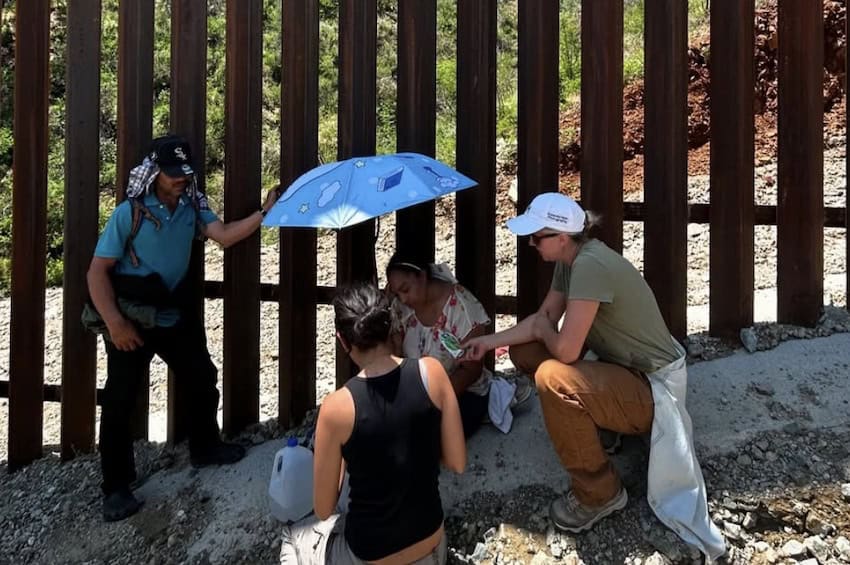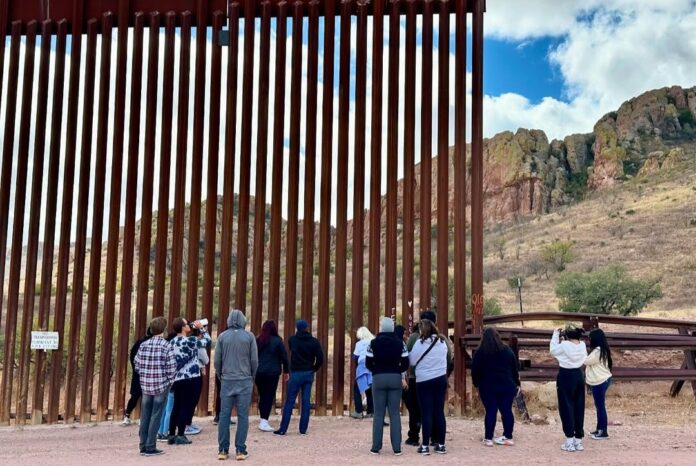A diverse group of volunteers in Arizona is looking out for migrants arriving at the United States-Mexico border despite an increase in anti-immigration rhetoric from U.S. President Donald Trump.
Tucson Samaritans, founded in 2002, is a grassroots, volunteer-run, humanitarian aid organization that provides water, food, first aid and other essential items to migrants who cross into Arizona from Mexico. They take up to 14 trips into the Sonoran Desert each week.

According to their website, the volunteers “range in age from college students to people in their 80s. Some of us are multilingual; some speak only English. Some are recent immigrants while others trace their heritage for many generations in the Sonoran Desert.” Their stated mission is to save lives and relieve the suffering of migrants in Southern Arizona.
“What you don’t want to do is see people suffer,” Tucson Samaritan Gail Kocourek told KOLD-TV News in a recent interview. “One of my favorite pastors said, ‘[Migrants] are people too, and it’s not our place to judge, our job is to help people.’”
The Samaritans describe their work as a “civil initiative” in support of U.S. laws that they believe the government is not following and in opposition to laws that the group believes are causing suffering and death.
Acknowledging that the U.S. immigration system is broken, the Samaritans have lobbied U.S. lawmakers to take action. “We need more asylum judges to process cases faster. People are waiting three and four years [for their cases to be heard],” Nicholas Matthews, a Tucson Samaritan, told the Los Angeles Times in October.
“A nosotros lo único que nos importa es ayudar”, dicen los Tucson Samaritans, un grupo de voluntarios de adultos mayores que proporcionan agua, alimentos, ropa y primeros auxilios a los migrantes que cruzan la frontera por el sur de Arizona https://t.co/bpOIjcw5Ab pic.twitter.com/bIug0dAkwH
— El Universal (@El_Universal_Mx) January 24, 2025
The Samaritans are not alone. Tucson boasts a network of churches and nonprofits that provide temporary shelter and supplies for migrants seeking a better life in the United States.
Organizations such as Salvavisión, No Más Muertes and Fronteras Compasivas make weekly trips to southern Arizona to leave water jugs in the desert for migrants making the 70-mile trek across the arid terrain stretching between the Mexico border and Tucson.
Among other items, the volunteers leave cereal bars, soup packets and cookies, as well as clothing such as shoes, socks and caps.
The Salvavisión volunteers do their best to humanize the trip for the migrants, writing messages of support such as “God be with you” on the water jugs.
Tucson Mayor Regina Romero, the daughter of immigrant farmworkers from Mexico, is a vocal critic of Republicans who have turned immigration into a “wedge issue” while “spewing lies” about migrants with “cruel and dehumanizing” language.
View this post on Instagram
While giving humanitarian aid to anyone is legal, members of the Tucson Samaritans frequently receive threats and get stalked by people who don’t agree with their work, according to KOLD-TV news.
The Samaritans have been harassed by anti-immigration vigilantes carrying cameras and rifles. The vigilantes have been known to shoot holes in the water jugs left by volunteers for the migrants.
With reports from El Universal, the Los Angeles Times and KOLD-TV
